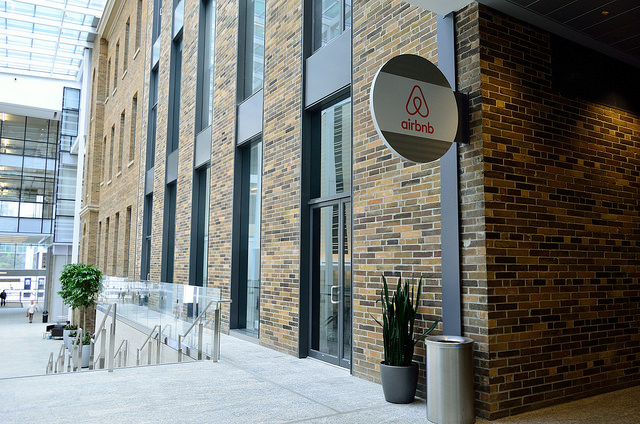
OTTAWA — Newly released documents to Canada’s finance minister suggest traditional hotels in two of Canada’s biggest cities have not fared badly as they face rising competition from online platforms like Airbnb.
The April 18 memo to Finance Minister Bill Morneau says that average hotel occupancy rates in Vancouver and Toronto were higher than Airbnb listings between 2015 and 2017.
Officials estimated that Airbnb’s share of total demand for rooms in the two cities roughly doubled since 2015. And while hotel occupancy rates didn’t decline over the same period, “it is possible they could have risen more than they actually did” if Airbnb and other platforms weren’t around.
But “despite the rising occupancy rates,” Morneau was told in the briefing note obtained by The Canadian Press under the access to information law that the hotel industry still sees an unlevel playing field with Airbnb “as there is no tax” on the service.
Pressure from domestic businesses had been building on the Trudeau government to apply sales taxes to online services providers like Airbnb and Netflix when Morneau was provided a breakdown on the situation between hotels and short-term rentals.
Any recommendations to Morneau have been withheld from release because officials say it is sensitive ministerial advice.
In April, a Liberal-dominated Commons committee urged Ottawa to make online service providers based outside the country collect and remit sales taxes as part of a series of recommendations to help Canada’s small businesses compete online.
The platforms themselves have told federal officials they are open to applying sales taxes, but the Liberals have shied away from implementing the idea so far.
On Tuesday, Airbnb announced it would provide the City of Ottawa with revenues from a four per cent hotel tax on its listings in the national capital starting Aug. 1, marking the second such tax agreement the online platform has finalized in Canada.
Airbnb already collects and pays a 3.5 per cent lodging tax in Quebec that the company says totalled $2.8 million in fees to the province over the first six months of its tax agreement.
The online company says the City of Ottawa could have received about $850,000 in tax revenue last year if a deal had been in place to collect the levy from 2,700 hosts.
The briefing note to Morneau says that annual revenue from Airbnb was greater than that earned from long-term rental units, even though the short-term rentals were occupied on average for only half the year. Morneau was told listings in the west end and downtown Vancouver earned almost double the rental rates for a two-bedroom apartment.
— With files from Andy Blatchford